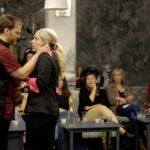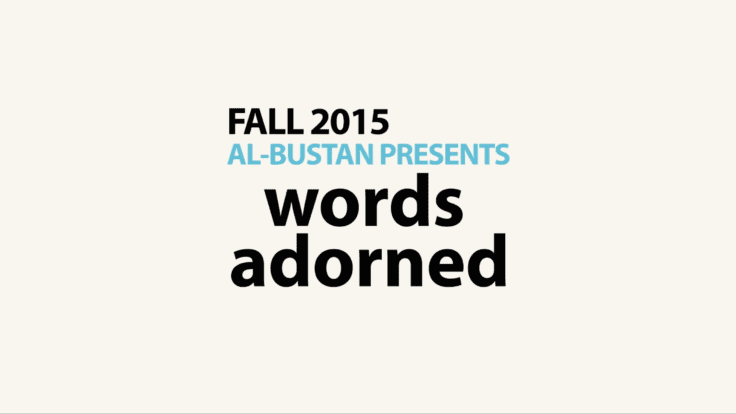Most of my experience with art is mainly as a spectator. I’ve looked at paintings, photographs, sculptures; watched plays, films, and concerts. But I’ve never experienced anything quite like the work of Tania El Khoury, an artist who splits her time between London and Lebanon. El Khoury’s work pulls you in, makes you a part of the work, a participant, a collaborator. And because of your part in it, the work stays with you.
This fall Bryn Mawr College’s performing arts series and FringeArts co-presented a collection of five of Tania El Khoury’s works. Four of them had appeared around the world, and one of them was commissioned by Bryn Mawr College.
As the video partner in this project, I was able to experience “Gardens Speak,” one of El Khoury’s works that was a ticketed event. To describe the experience in words is completely lacking. But imagine going into a dark room dressed in a light raincoat. In the room you find ten gravestones with Arabic text planted in a small field of fresh soil. You are given a card that matches one of the ten gravestones. You find it and dig in the soil so you can press your ear in the dirt and listen to an audio story of a martyr from the early days of the Syrian uprising.
I heard the story of Hassan Hassan, a young Palestinian refugee who grew up in the Yarmouk Refugee Camp in Syria. I heard about his dreams and his daily life in the camp. I heard about the Syrian regime’s siege of the camp and Hassan’s activism, doing stand-up comedy and making a film about the situation. When the situation in the camp got much worse, Hassan and his wife Wa’d left. Hassan was arrested at a government checkpoint, while his wife was sent on her way. The Syrian government interrogated Hassan and tortured him to death. His family only learned of his fate in December 2013, and his body was never returned to his family.
Laying in the dirt, with its dank odor, and with soil under your fingernails, this story makes an impact on you. You feel it in addition to hearing it because your senses are engaged.
After the story, you have an opportunity to write a letter to the martyr whose story you heard.
“Gardens Speak” has toured the entire world, generating thousands upon thousands of letters. Those letters became a part of the installation that Bryn Mawr College commissioned — “Tell Me What I Can Do.” This installation displays the letters from Gardens Speak collected from around the world.
It was great to work on this project, both to promote Tania El Khoury’s work and document its presentation at Bryn Mawr College and FringeArts. If you ever have the chance to experience Tania El Khoury’s work, take the opportunity.



 Words Adorned: Andalusian Poetry & Music – Al-Bustan Seeds of Culture
Words Adorned: Andalusian Poetry & Music – Al-Bustan Seeds of Culture